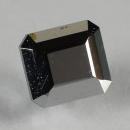|
|
||||||||||||||||
|
||||||||||||||||
|
||||||
|
|
|
|
Sperrylite
|
|
| | |
| Discovered in 1889; IMA status: Valid (pre-IMA; Grandfathered) | ||
|
| ||
|
Chemistry |
|
|
| |
|
PtAs2 | |
|
|
Platinum Arsenide |
|
Molecular Weight: |
344.92 gm |
|
Composition: |
Arsenic |
43.44 % |
As |
|
|
|
|
Platinum |
56.56 % |
Pt |
|
|
|
|
|
100.00 % |
|
|
|
|
|
|
||||
|
Classification |
|
|
| |
|
Sulfides and Sulfosalts | |
|
2/D.17-120 | |
|
|
2 : SULFIDES and SULFOSALTS (sulfides, selenides, tellurides; arsenides,
antimonides, bismuthides; sulfarsenites, sulfantimonites,
sulfbismuthites, etc.) |
|
Related to: |
Pyrite Group. |
|
Members of Group: |
Pyrite Group: Aurostibite, Cattierite, Dzharkenite, Erlichmanite, Fukuchilite, Pyrite, Sperrylite |
|
Varieties: |
None |
|
Synonyms: |
ICSD 38428, PDF 42-1341 |
|
|
|
|
Crystal Data |
|
|
|
|
|
Commonly well crystallized as cubes and cubo-octahedrons, to 5 cm; may be highly modified with rounded edges and corners; as intergrowths with Pt–Fe alloys. |
|
|
None |
|
|
|
|
|
Physical Properties |
|
|
|
|
|
Indistinct on {001} |
|
|
Conchoidal |
|
|
Brittle |
|
|
6.0 - 7.0; Vickers: VHN100=960 - 1277 kg/mm2 |
|
|
10.58 (g/cm3) |
|
|
None |
|
|
Not Radioactive |
|
|
|
|
|
Optical Properties |
|
|
|
|
|
Tin-white |
|
|
Opaque |
|
|
Metallic |
|
|
Isotropic. R: (400) 53.6, (420) 53.6, (440) 53.9, (460) 53.9, (480) 53.9, (500) 53.9, (520) 54.0, (540) 53.9, (560) 53.8, (580) 53.7, (600) 53.5, (620) 53.1, (640) 52.7, (660) 52.3, (680) 51.9, (700) 51.4 |
|
|
0.000 (Isotropic) |
|
|
n/a |
|
|
n/a |
|
|
|
|
|
Occurances |
|
|
|
|
|
Geological Setting: |
Platinum deposits. The most widespread Platinum mineral, occurring in every type of deposit. |
|
Common Associations: |
Pyrrhotite, Pentlandite, Chalcopyrite, Violarite, Cubanite, Bornite, Sphalerite, Galena, Linnaeite, Magnetite, Testibiopalladite, Sudburyite, Omeiite, Gold, Argentian Gold (Danba, China); Leadamalgam, Chromite, Ilmenite, Magnetite, Gersdorffite, Pyrite, Chalcopyrite, Violarite, Millerite, Galena, Stibnite, Argentian Gold, Niggliite, Iridosmine, Platinum, Merenskyite, Kotulskite (Shiaonanshan, China); also Cooperite, Laurite. |
|
Common Impurities: |
Ir, Rh, Fe, Cu, Sb |
|
Type Locality: |
Vermilion Mine, Denison Township, Sudbury District, Ontario, Canada |
|
Year Discovered: |
1889 |
|
View mineral photos: | |
|
|
|
|
More Information |
|
|
|
|
|
| |
|
|
|
|
Sperrylite belongs to the Pyrite Group of minerals. Sperrylite and Pyrite share a similar structure and therefore similar crystal habits. Other than crystal shapes, they do not look alike though because Pyrite is a brassy yellow and Sperrylite is tin-white in color. Sperrylite gems are extremely rare and valuable. Faceted gems are very attractive with their high metallic luster. Locations:
In Canada, at the Vermilion [TL - Type Locality], Victoria,
and Frood mines, Algoma district, near Sudbury, Ontario.
In the USA, at the New Rambler Cu–Ni mine, Medicine
Bow Mountains, east of Encampment, Albany County, Wyoming;
in the Key West mine, east of Moapa, Bunkerville district,
Clark County, Nevada; and from the Stillwater complex,
Montana. In the Bushveld complex, on the Merensky reef,
Transvaal, South Africa, fine crystals from the Tweefontein
Farm, near Potgietersrus; also at the Atok, Onverwacht,
and Rustenburg mines. From Antamponbato, Madagascar.
In China, from Danba, Sichuan Province; and Shiaonanshan,
Inner Mongolia. In Australia, at several deposits east
of Broken Hill, New South Wales, and at Kambalda, 56
km south of Kalgoorlie, Western Australia. In Russia,
large crystals from the Talnakh area, Noril’sk region,
and at Nikolaevsky, Amur, Siberia; in the Konder massif,
Aldan Shield, Sakha; and elsewhere. In Finland, at Rometölväs
Hill, in the Koillismaa complex; from the Hitura Cu–Ni
deposit; and in the Siikakama intrusion. |
|
|
We
have not photographed our Sperrylite gems yet. Please
check back soon. |
